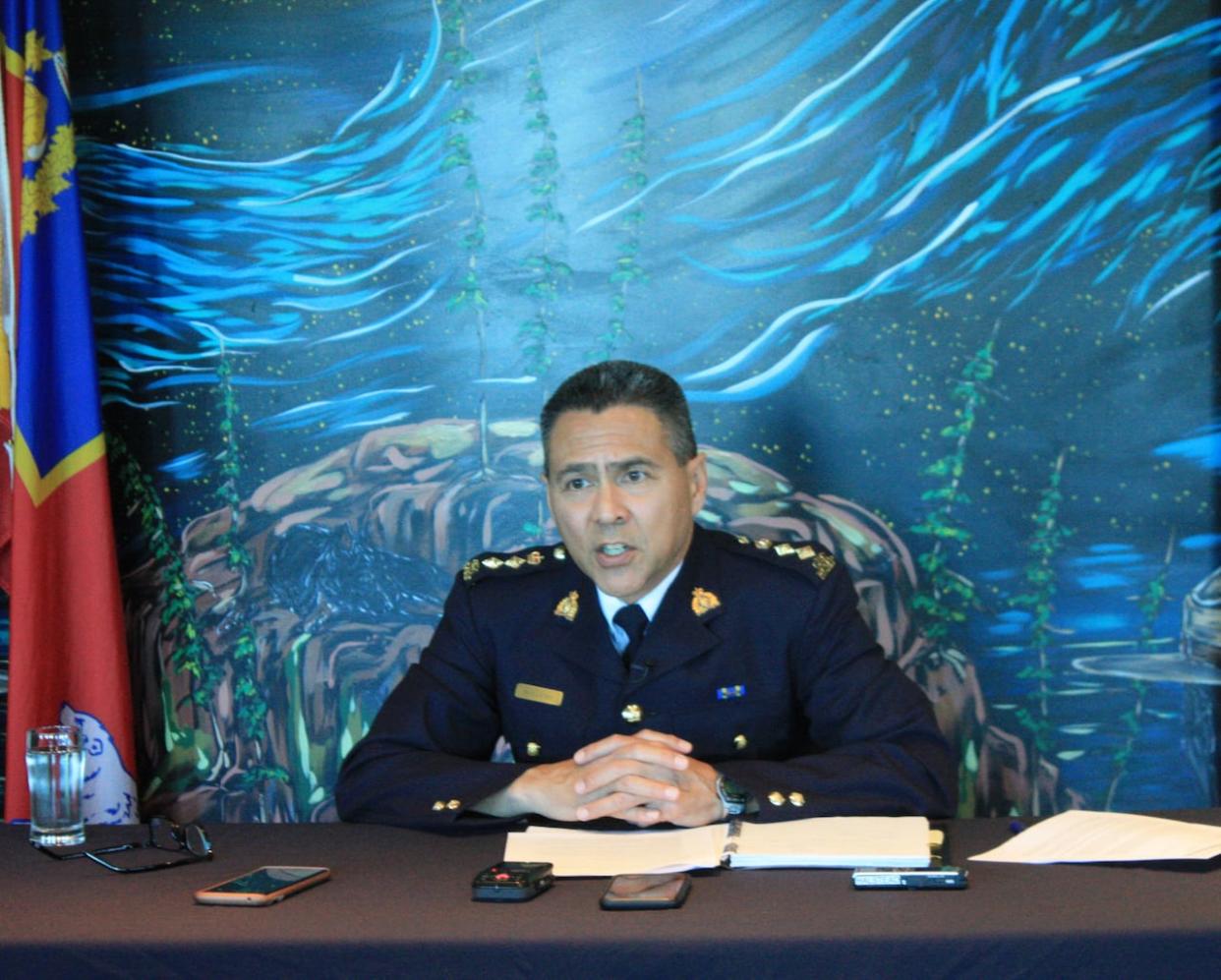Q+A | N.W.T.'s outgoing top RCMP officer on reconciliation, change and 'an unprecedented year'

The N.W.T's top RCMP officer is leaving his job after less than two years in the role.
Chief Supt. Sydney Lecky will start a new job this month as chief of the Timmins Police Service in Ontario.
Lecky spoke with CBC's Trailbreaker guest host Marc Winkler about what his time on the job has been like, and what he hopes for the next person who takes over.
This conversation has been edited for length and clarity.
You haven't been in the job that long. Why have you decided to move on?
It's one of those things in life where you have age and the amount of service, and they start to catch up with you, and if you're going to do something different, you have to take the opportunities when they come. And that's really the idea behind it. I love it here, but there's just opportunities and I just don't have enough runway left in front of me.
You've talked about prioritizing reconciliation in the work of the RCMP. What have you done in that regard since then?
That was one of the goals of coming here. As an Indigenous person, it's an important aspect of what I do everywhere I've been. Getting out to all of our communities, as many as I could. Unfortunately we lost our plane last spring and that curtailed a lot of that, but I was able to get to all corners of our territory and meet with community leaders. If I had an opportunity to be there, I was there. We're here to provide a culturally-responsible and sensitive service to the communities that we serve.
I also met with detachment commanders from around the territory to speak with them and to get our message out at every training opportunity.

The RCMP detachment in Łutselk'e, N.W.T. (Natalie Pressman/CBC)
How did you change the police force toward reconciliation?
It's not so much change. It's about the presence and the understanding of why we're here. And you know, it's really tough for many folks, especially if you don't have an Indigenous background or if you haven't lived and worked in those communities, to have an appreciation and understanding of what brings us here as Indigenous people. The challenges, the historical challenges that have gotten us here, and the role that police had in the past and that this is different.
Reconciliation means many different things to many different people. But what it does mean is we are doing things differently than we have in the past. And how we approach people, how we engage in our communities, how we work and provide not just a sensitive and culturally-responsive service, but just an appreciation and understanding of what it is that brings us here. So that's been kind of the primary goal.
When you say an understanding of what brings us here, what do you mean?
Not just as police but as Indigenous people. Residential schools have a significant and continuing impact here, not just in Canada but particularly I see it here in the Northwest Territories. I have a commanding officer's Indigenous consultative committee which is made up of people from throughout the regions of the territory and they get that message across to me on the impact of residential school.
And that's an important message that I have been getting across to our members and staff. So they have an appreciation and understanding of some of the social challenges that we deal with and that that's, in a large part, what brought us to where we are. People are still trying to deal with the legacy of residential schools.
Let's move on to another issue. Sahtu leaders just held a workshop to address the increase in illegal and toxic drugs coming into their communities. Hay River is facing similar issues. Why do you think this situation is so hard to manage?
It's not just those regions, it's all throughout the territory. I was shocked when I got here to find that we had people from outside of the territory that were showing up in Fort McPherson, Aklavik, or in any corner of our territory. They have a unique business model where they just show up and they take over someone's home they take advantage of our vulnerable people. So it's not just in those communities, it's everywhere and it is probably the most significant challenge we've had and it's not just an emerging thing. This is something that I think we're going to see for some time.
You've seen that in the unprecedented homicides that we've had. There's definitely a connection to many of them and our inability to hold offenders accountable. We have some challenges keeping people on bail while they're waiting for court and they don't stop offending. Oftentimes, violent offenders have bail restrictions that are ignored and they show up here to cause harm in our communities and it's significant. So it's a significant pressure on our community members, our community leaders, and certainly our police.
What do you think it will take to change or improve this situation?
Well, contrary to popular belief, I as the commanding officer don't have the ability to just move resources. I don't have the ability to respond and take resources from one area and move it to another area where I see a need as we're seeing a need grow everywhere. What would be helpful would be to have a response unit that I could send to communities and provide the support to the local RCMP in those jurisdictions. But really, the challenges for policing today compared to 10 or 20 years ago are are much, much, much different.
What do you think the person coming into your position should prioritize?
Continue working to engage and provide a culturally-sensitive service. That will have to be a focal point, if not a double-down on those efforts. And definitely continuing with policing as a risk-based business. Everything we do has a risk assessment done and how we're going to deliver that service, how we're going to respond to whatever the challenges of the day are. And as we're seeing these increasing, we've had an unprecedented year of homicides that puts pressure on our major crime units. It puts pressure on, from a policing perspective, all of our services that we provide.


